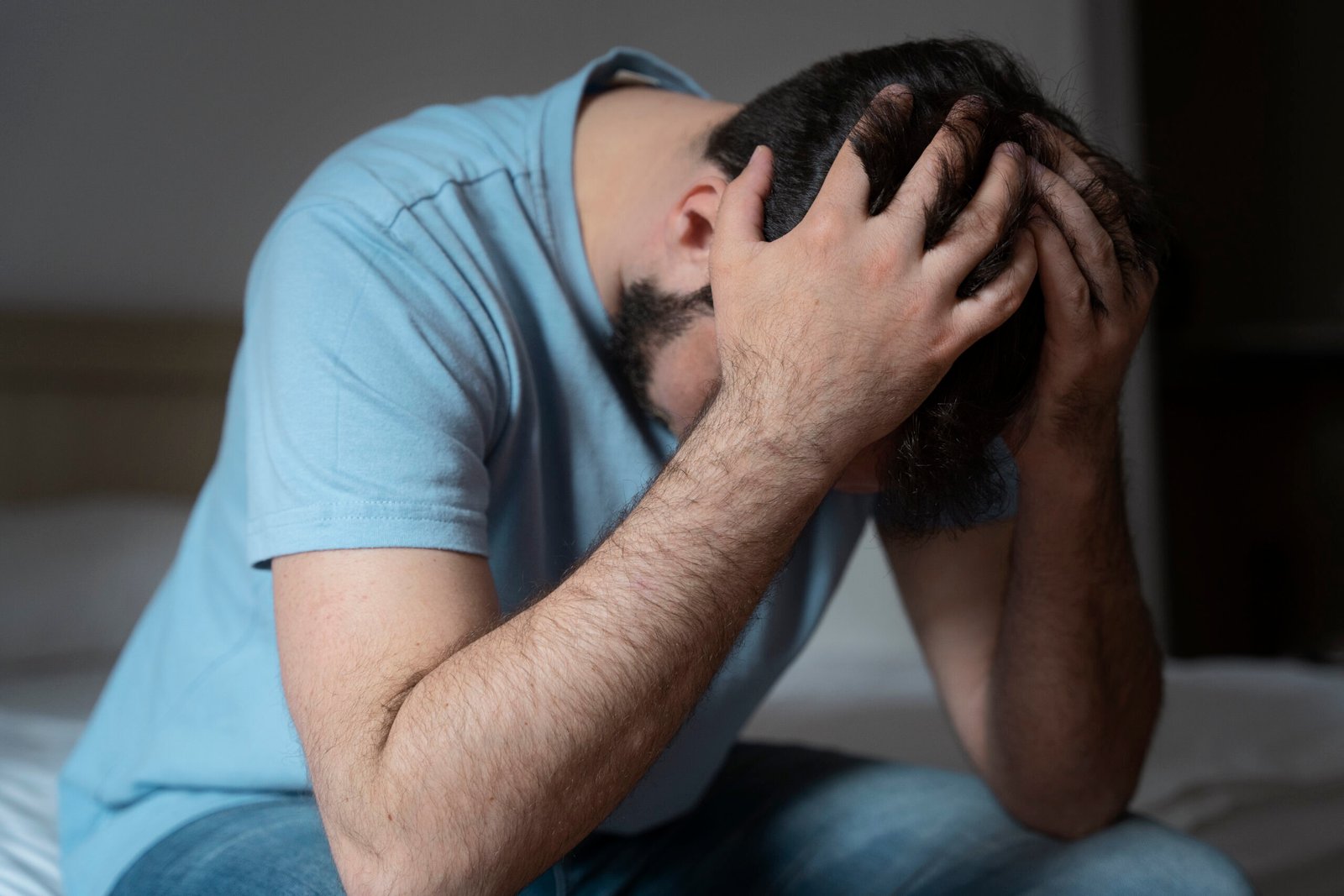
Understanding and Managing Anxiety
Anxiety is a common mental health condition affecting millions of people around the world. It can manifest in various forms, from fleeting nervousness to debilitating disorders that interfere with daily life. At Positive Transformation MHS, we understand how overwhelming anxiety can be, and we're here to provide support and guidance. In this blog post, we'll explore what anxiety is, the causes of anxiety, signs of anxiety, and effective ways to manage anxiety so you can take control of your mental health and live a more peaceful life.
What is Anxiety?
Anxiety is a natural response to stress, characterized by feelings of worry, fear, or unease. While it’s normal to feel anxious occasionally—such as before an important event—anxiety disorders involve excessive, uncontrollable worry that can interfere with daily activities.
There are various types of anxiety disorders, including:
- Generalized Anxiety Disorder (GAD): Persistent worry about everyday situations.
- Social Anxiety Disorder: Fear of being judged or embarrassed in social situations.
- Panic Disorder: Sudden, intense panic attacks accompanied by physical symptoms.
- Health Anxiety: Constant worry about having a serious illness.
- Performance Anxiety: Fear of performing in front of others, often referred to as stage fright.
What Causes Anxiety?
Anxiety can be triggered by multiple factors, both internal and external. Common causes of anxiety include:
- Genetics: A family history of anxiety or other mental health conditions.
- Stress: Ongoing stress from work, finances, or relationships.
- Trauma: Experiencing or witnessing a traumatic event.
- Substance Use: Alcohol, drugs, or even high caffeine intake can increase anxiety symptoms.
- Health Conditions: Chronic illnesses, hormonal imbalances, or medications can contribute to anxiety.
Signs of Anxiety
Recognizing the signs of anxiety is crucial for early intervention. Symptoms can vary from person to person but often include:
- Emotional Symptoms: Constant worry, fear, or dread.
- Physical Symptoms: Rapid heartbeat, sweating, dizziness, or muscle tension.
- Behavioral Symptoms: Avoiding situations that trigger anxiety, difficulty sleeping, and withdrawing from social interactions.
If you're experiencing any of these symptoms regularly, it may be time to seek help.
How to Deal with Anxiety: Coping Strategies
At Positive Transformation MHS, we believe in empowering individuals to manage anxiety through practical, evidence-based methods. Here are some effective strategies for coping with anxiety:
- Mindfulness and Meditation Practicing mindfulness can help you stay grounded and manage anxious thoughts. By focusing on the present moment and engaging in meditation for anxiety relief, you can train your mind to reduce overthinking and stress.
- Exercise Regularly Physical activity is a powerful tool for anxiety relief. Exercise releases endorphins, which are natural mood lifters, and helps reduce tension in the body. Even simple activities like walking or yoga can make a significant difference.
- Deep Breathing Exercises When anxiety strikes, it often leads to shallow, rapid breathing. Practicing deep breathing exercises can help calm your nervous system and reduce the intensity of anxiety symptoms.
- Limit Caffeine and Alcohol Stimulants like caffeine can increase heart rate and exacerbate anxiety symptoms. Cutting back on caffeine and alcohol or eliminating them from your diet can help control anxiety attacks.
- Establish a Routine Anxiety often thrives in unpredictability. Creating a daily routine can help you feel more in control and reduce uncertainty, which may lead to fewer anxiety episodes.
- Seek Professional Help If your anxiety is affecting your day-to-day life, it might be time to consult a mental health professional. At Positive Transformation MHS, we offer therapy for anxiety and depression, focusing on holistic, personalized care. Cognitive Behavioral Therapy (CBT) is a proven method for helping individuals challenge negative thought patterns and develop healthier coping mechanisms.
How Therapy Can Help
Therapy is one of the most effective treatments for anxiety disorders. During therapy sessions, you'll work with a licensed therapist to uncover the root causes of your anxiety and learn strategies for managing it. Our specialists at Positive Transformation MHS are experienced in addressing different forms of anxiety, including social anxiety, performance anxiety, and generalized anxiety disorder.
In some cases, medication may be recommended alongside therapy to manage more severe symptoms. Natural remedies for anxiety such as mindfulness practices, dietary changes, and exercise can also complement your treatment plan.
Anxiety in Children and Adults
Anxiety doesn’t only affect adults—it can also manifest in children. Anxiety in children often presents as excessive worry about school, friendships, or family issues. At Positive Transformation MHS, we specialize in providing support for individuals of all ages. Whether you're concerned about your child's anxiety or dealing with work-related anxiety as an adult, our team is here to offer compassionate care and proven treatments.
When to Seek Help
If anxiety is preventing you from living your life fully, it’s important to seek professional guidance. Common signs that it's time to seek help include:
- Persistent worry or fear
- Difficulty sleeping
- Avoiding social or professional situations
- Frequent panic attacks
- Difficulty concentrating or making decisions
Positive Transformation MHS offers anxiety and stress management services tailored to your unique needs. We’ll work with you to create a personalized treatment plan that helps you regain control of your mental health.

